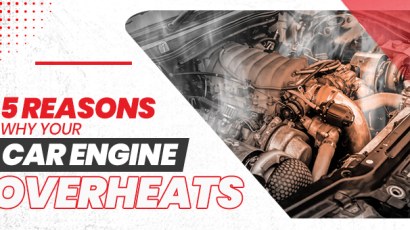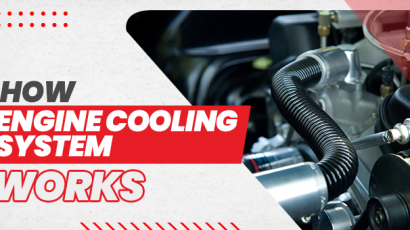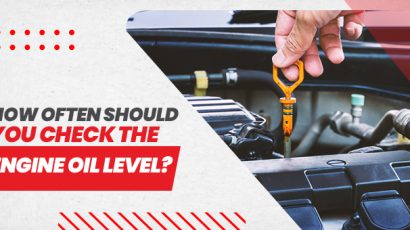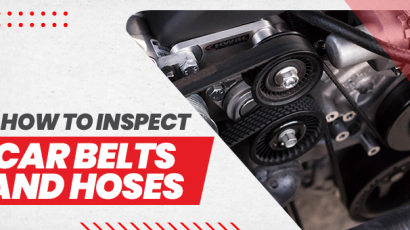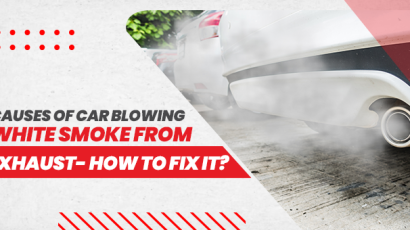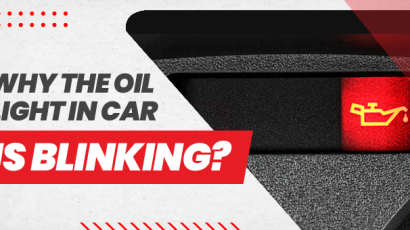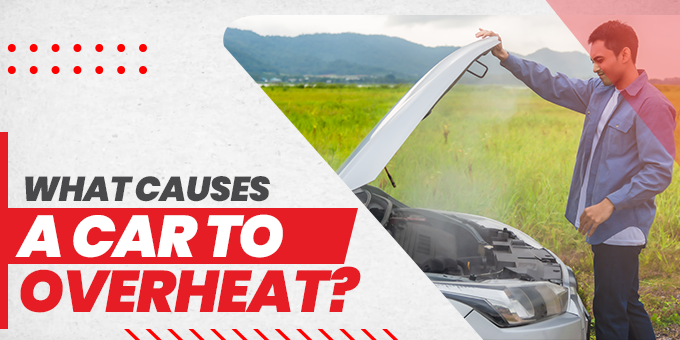
An overheating engine can be quite a disaster, especially if you are with your family on a road trip. No one likes being stranded on the road with an engine that refuses to work. It becomes quite a hassle.
Several reasons become cause an engine to overheat. If you are wondering what causes a car to overheat and how you can prevent it in the future, we’ve got you covered. Below we discuss the reasons and precautions to avoid car overheating and enjoy your long drives. So, let’s begin.
What is Engine Overheating?
First of all, let’s understand what engine overheating is. A car engine usually operates within a specific temperature range that lies between 195 and 220 degrees Fahrenheit. If this temperature range exceeds, it leads to performance problems. Not addressing the problem leads to engine failure eventually.
Causes of Engine Overheating
There are several reasons that cause a car to overheat. Below we have discussed the most common in detail:
Low Coolant Level
Coolant is a liquid that helps regulate the engine’s temperature by circulating through it. If the level of the coolant is low, it will do a poor job of regulating the temperature, causing the engine to overheat. Coolant levels can become low due to a leak or evaporation. So, make sure you check the coolant level regularly.
Thermostat Malfunction
The thermostat opens and closes as necessary, allowing it to keep the engine’s temperature in check. In case the thermostat malfunctions, which means it shuts close, the coolant won’t circulate correctly. Hence, causing the engine to overheat.
Cooling Fan Failure
Air is circulated over the radiator by the cooling fan, which aids in removing heat from the engine. The engine may overheat if the fan isn’t working properly.
Radiator Issues
The radiator is a vital component of the engine’s cooling system. If there’s a problem with the radiator, such as a leak or a blockage, the engine can overheat.
Water Pump Failure
The coolant is pumped throughout the engine via the water pump. The engine won’t get enough coolant if the water pump malfunctions, which will cause it to overheat.
Clogged or Damaged Hoses
The channels through which coolant travels in the engine are called hoses. The coolant cannot flow properly if the hoses are blocked or damaged, which causes overheating.
Engine Oil Issues
Engine oil lubricates the engine and helps dissipate heat. If the oil level is low, or if the oil is dirty and thick, it won’t be able to do its job effectively, causing the engine to overheat. There are various types of reasons why engine oil light blinks.
Malfunctioning Sensors
Modern cars have sensors that monitor various components of the engine, including its temperature. If one of these sensors malfunctions, it can send incorrect signals to the car’s computer, which can cause the engine to overheat.
External Factors
External factors can also cause the engine to overheat. These include driving in extreme temperatures or using the air conditioning excessively. In some cases, heavy loads or towing can also put extra strain on the engine, leading to overheating.
How to Prevent Engine Overheating
It is essential to protect your engine and prevent it from overheating if you want to enjoy a smooth drive. Also, it will help you maintain your car in good condition and prevent costly repairs. Following are some ways you can prevent the car’s engine from overheating:
Regular Maintenance
Regular vehicle maintenance is beneficial since it keeps everything in check. Therefore, you should frequently perform oil changes, coolant flushes, and radiator inspections to keep the engine in good shape. Moreover, a well-maintained engine is less likely to overheat.
Keep an Eye on the Temperature Gauge
You should be well aware while driving. One thing to ensure is keeping a check on the temperature gauge. If you find it rising, it’s best to stop at the roadside and let your car cool off. Also, shut the engine right away to avoid damage.
Check the Coolant Level
The coolant level is necessary to prevent the engine from overheating. You should keep it in check at all times. If the coolant level consistently drops, you should consult a professional mechanic who will help identify the problem and fix it.
Inspect the Radiator and Hoses
Another tip to prevent your engine from overheating is to look for signs of leaks or damage on the hose or radiator. If there are any problems, you should fix or replace them right away.
Avoid Extreme Temperatures
Driving your vehicle in extreme temperatures can cause your engine to become overheated. You should avoid it whenever possible. Moreover, try to use less air conditioning in extremely hot weather as it can cause the engine to overheat.
What to Do When Your Engine Overheats: Steps to Take
If you notice that your engine is overheating while driving, it’s important to take immediate action to avoid further damage to the engine. The following actions can be taken if your car overheats:
Turn Off the AC and Turn on the Heater
Turn off the air conditioning and switch on the heater as soon as you realize that your engine is overheated. This will help dissipate some of the heat from the engine and allow it to cool down sooner.
Pull Over to a Safe Location
When the engine begins to overheat, you should pull your car over at a safe place and park it. It’s best to finish this as soon as you can to prevent more harm to the engine.
Let the Engine Cool Down
After stopping the automobile, turn off the engine and give it at least 30 minutes to cool. Moreover, you shouldn’t attempt to open the hood or even the radiator cap at this point. Doing this while the engine is still hot can cause burns.
Check the Coolant Level
When you see that the engine has cooled, check the coolant level. If your coolant level is low, add more. Also, confirm that the system is leak-free. If you can’t figure it out, it is best to call for professional help.
Restart the Engine
Once you’ve checked the coolant level and identified any leaks, restart the engine and monitor the temperature gauge. If the engine continues to overheat, it’s best to call for professional help or have your car towed to a mechanic.
Preventative Measures
No one wants to drive a faulty engine. You should adhere to the suggested maintenance schedule provided by the manufacturer to stop your car from overheating once more. Moreover, you should check the coolant level and cooling system components regularly for any signs of damage.
Furthermore, you should avoid taking your car out in extremely hot or cold weather, as it puts strain on the engine. All in all, following these steps and implementing preventive measures can keep your engine healthy and prevent it from overheating.
The Final Word
Overheating in vehicles is a major problem that needs to be resolved right away. Overlooking it can lead to bigger problems in your vehicle. Moreover, it can cause it to completely break down as well.
If your engine overheats, follow the steps outlined in this article to help minimize damage and get your car back on the road as soon as possible. Always put safety first, and if you’re unclear about what to do when your engine overheats, ask an expert for advice.
To check more blogs on car care tips, please follow the link.






